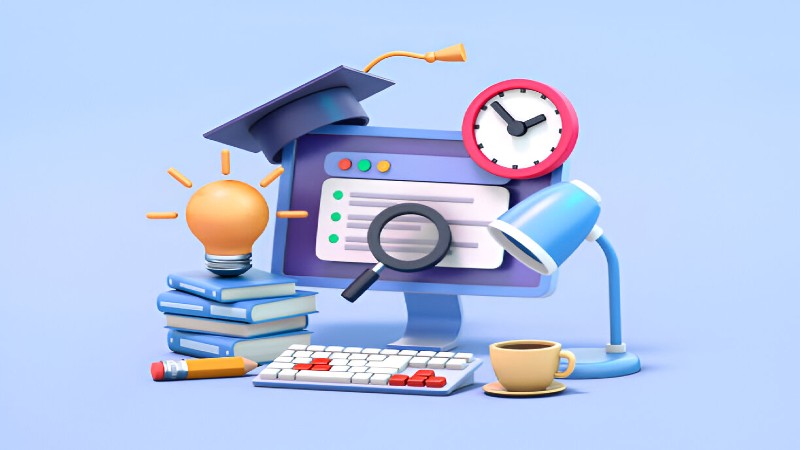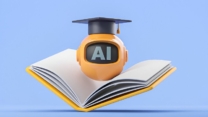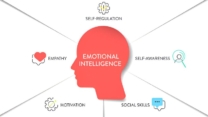
Lifelong Learning: Education in the Digital Age Transforms How We Grow
The landscape of education has fundamentally shifted. In an era defined by rapid technological advancements and unprecedented global interconnectedness, lifelong learning in the digital age is no longer a theoretical concept but a practical necessity. It’s the continuous journey of acquiring new skills and knowledge, embracing curiosity, and leveraging technology to stay relevant and thrive. From the foundational shift from physical encyclopedias to instantaneous online searches, our access to information has been revolutionized
The Power of Adaptive Learning Ecosystems
The digital age has ushered in a new paradigm for learning, moving beyond rigid curricula to flexible, responsive systems. At the heart of this transformation are adaptive learning ecosystems, powered by cutting-edge technologies. These systems analyze individual learning patterns, strengths, and weaknesses to deliver tailored content and resources.
Artificial Intelligence (AI)
For instance, Artificial Intelligence (AI) is at the forefront, creating personalized learning pathways. AI-driven intelligent tutoring systems, like those discussed in 2025 e-learning trends, can simulate one-on-one sessions, offering real-time feedback and support, effectively bridging the gap between traditional and online learning. This ensures that whether you’re a student in a bustling city or an adult learner in a remote village, the learning experience adapts to your pace and your style. Studies indicate AI-enhanced learning can improve student engagement and retention by 20-30% compared to traditional methods.
Virtual Reality (VR) and Augmented Reality (AR)
Another crucial component is immersive learning through Virtual Reality (VR) and Augmented Reality (AR). Imagine medical students practicing complex surgical procedures in a virtual environment or engineering students designing and testing structures using AR. These technologies provide hands-on, memorable experiences that transcend traditional limitations, allowing for safe skill refinement and a deeper understanding of complex concepts.
The beauty of these adaptive ecosystems lies in their responsiveness. Learning analytics, for example, collect and analyze student data to provide educators with insights into progress, allowing for proactive interventions. This means teachers can make targeted adjustments, revise materials, or offer extra support precisely where needed, moving beyond reactive, end-of-term assessments to continuous, data-informed guidance.
Why Online Education is Essential
Online education stands as a pillar of lifelong learning in the digital age, offering unparalleled flexibility and accessibility that traditional models often cannot match. Its essential nature stems from several core benefits:
| Feature | Benefit in Digital Age Lifelong Learning |
| Flexibility | Learn at your own pace, anytime, anywhere; ideal for busy schedules. |
| Accessibility | Bridges geographical gaps, offering quality education irrespective of background. Access diverse global institutions. |
| Affordability | Reduces costs (transportation, accommodation, textbooks), making education viable for more people. |
| Personalization | Tailored experiences, fostering global connections and networking. |
| Self-Paced | Review and revisit course material for deeper understanding and retention. |
| Career Impact | Enhances employability with recognized online qualifications and in-demand skills. |
| Skill Enhancement | Develops digital literacy, critical thinking, and problem-solving through practical application. |
The ability to log in anytime with an active internet connection democratizes access to knowledge. This is particularly transformative for individuals in remote areas or those with limited economic means, allowing them to pursue degrees, certifications, and professional courses from diverse institutions worldwide. The growing global participation in online learning, with a significant increase in adult learning participation rates in the EU from 9% in 2020 to 11% in 2021 (and some countries like Sweden reaching 35%), underscores its widespread acceptance and critical role.
Bridging Generational Divides
While general adult participation in learning has reached a high, older demographics often lag, with participation decreasing significantly with age – for example, 64% of 25-34 year olds participate compared to 35% of 55-69 year olds. This highlights a critical area for focused effort and inclusion.
Successful initiatives are emerging that prioritize digital inclusion for older adults. For instance, programs often leverage intergenerational approaches, pairing younger students with seniors for digital literacy training. These community-engaged learning models not only increase digital skills and confidence among older adults but also foster valuable social connections and reduce isolation. Organizations like UNESCO IITE are actively developing guidance for teachers and policymakers on promoting ICT capacity building and open education for the elderly, specifically incorporating AI technologies.
The focus in such programs is often on:
- Perceived Usefulness: Demonstrating how technology enhances daily life (communication, health, finance).
- Perceived Ease of Use: Providing user-friendly platforms and hands-on, patient instruction.
- Facilitating Conditions: Ensuring access to reliable devices and internet, along with supportive learning environments.
- Social Influence: Encouragement from family, peers, and instructors, often within a University of the Third Age (UTA) or similar community-driven model.
Implementing concepts like the Japanese Ikigai—finding purpose and joy—through digital learning can empower older individuals to maintain cognitive vitality and social engagement.
The Lifelong Digital Skill Imperative
For lifelong learning in the digital age to flourish, adult educators themselves must embody its principles, continuously acquiring and refining their digital skills. These skills are no longer an advantage but a fundamental requirement for effective teaching and remaining relevant in a world where mobile-first e-learning and microlearning are becoming the norm.
Core digital competencies for educators include:
- Basic Digital Literacy: Proficiency in core computer and internet use.
- Advanced Tools and Technologies: Mastery of Learning Management Systems (LMS), online collaboration platforms, and content creation tools like Canva or Adobe Creative Suite.
- Data Literacy: Ability to analyze learning analytics to assess student progress and improve outcomes.
- Cybersecurity Awareness: Understanding online safety and digital ethics to protect information.
- Digital Pedagogy: Integrating technology thoughtfully into teaching strategies, including multimedia, gamification, and adaptive learning tools.
- Accessibility and Inclusion: Designing digital content that accommodates diverse learning needs, including those with disabilities.
Digital Archives and Global Collaboration
The trajectory of lifelong learning in the digital age points towards increasingly sophisticated digital archives and enhanced global collaboration. The concept of a digital university is evolving, emphasizing openness, diversity, personalization, and intelligence.
Future systems will likely feature:
- Micro-credentials and Digital Badges: These flexible, verifiable certifications, with the global digital badge market projected to grow significantly (from USD 264.8 million in 2024 to USD 969.7 million by 2032), offer bite-sized recognition of specific skills, crucial for rapidly changing job markets.
- Credit Banks: Digital platforms designed to store, manage, and transfer academic credits seamlessly across institutions, promoting student mobility and modular learning pathways.
- Blockchain Technology: For secure, transparent, and tamper-proof educational credentials, revolutionizing how achievements are verified..
Conclusion
In conclusion, lifelong learning in the digital age is an unstoppable force reshaping how we acquire knowledge, develop skills, and adapt to change. From AI-powered adaptive platforms and accessible online courses to dedicated initiatives for older adults and the essential digital upskilling of educators, the ecosystem is growing richer and more inclusive. As we look ahead, the continued evolution of digital archives and global collaborative efforts promise an exciting future where learning truly knows no bounds, empowering every individual to thrive in a dynamically evolving world.
Frequently Asked Questions (FAQs)
What is lifelong learning in the digital age?
Lifelong learning in the digital age refers to the continuous acquisition of new knowledge, skills, and competencies throughout one’s life, leveraging digital tools and technologies to facilitate this ongoing educational journey.
Why is online education essential for lifelong learning?
Online education is essential because it offers unparalleled flexibility, accessibility, affordability, and personalization. It allows individuals to learn at their own pace, from anywhere, and provides access to diverse global educational resources, making continuous skill development feasible for all.
How does AI impact personalized lifelong learning?
AI significantly impacts personalized lifelong learning by analyzing individual learning patterns and offering tailored content, intelligent tutoring, and adaptive pathways. This enhances motivation, improves academic performance, and provides customized support based on unique needs.
What digital skills are critical for adult educators today?
Critical digital skills for adult educators include basic digital literacy, proficiency with advanced tools like LMS, data literacy, cybersecurity awareness, digital pedagogy (integrating technology into teaching), and skills for creating accessible and inclusive digital content.
How can older adults engage with digital technology for lifelong learning?
Older adults can engage through targeted digital literacy programs that focus on perceived usefulness and ease of use, provide supportive learning environments (e.g., intergenerational programs, UTAs), and encourage social influence from peers and instructors.
What are micro-credentials and how do they support lifelong learning?
Micro-credentials are small, verifiable certifications that recognize specific skills or competencies. They support lifelong learning by offering flexible, bite-sized, and stackable qualifications that are highly relevant to dynamic job markets, allowing for continuous upskilling and reskilling.
What challenges exist in promoting lifelong digital literacy in regions like Pakistan?
Challenges include the digital divide (access to reliable technology and internet), resistance to change, resource constraints, and the need for more relevant and engaging digital content in adult literacy programs, especially in rural areas.












